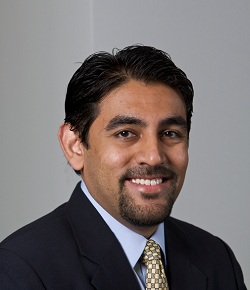
We’ve heard a lot about these so-called “superphones” like the Nexus One but Samsung’s Chief Strategy Officer Omar Khan wanted to provide a clear definition.
Speaking at the MobileBeat 2010 conference, Khan unsurprisingly said Samsung’s upcoming Galaxy S lineup hits all the check marks for this new category. These devices have a large display for high-quality video consumption, a powerful processor for multiple apps and an operating system that can enable users to access things like social networks on the go.
Khan called the last few months the “year of the 4+ display and the 1 GHz processor.” The Super AMOLED on the Galaxy S devices is very nice and I was blown away by the crispness. Khan didn’t seem to care about Apple’s Retina Display on the iPhone 4 because he called Samsung’s screen the best on the market, bar none.
While competing devices like the Droid Incredible may rock a 1 GHz processor as well, Khan said the Galaxy S devices offer the best 3D graphics experience out there.
Of course, increased screen sizes and processors can lead to power drains. That’s one nut that has yet to be cracked.
“I’m not sure anybody has the answer today but I know a lot of folks are working on it,” Khan said about mobile power consumption.
The hardware is just one part of the superphone experience, of course, as the software is increasingly becoming more important. Khan pointed out that while there are hundreds and thousands of apps in the Android Market and App Store, data suggests 60% of users interact with just seven apps on a daily basis. Those apps are the ones you’d expect: Facebook, YouTube, Google Maps, Search, The Weather Channel, ESPN and Pandora.
Khan said superphones like the Samsung Galaxy S can deliver desktop-like experiences on the go through apps and users want an experience that isn’t compromised. I have to disagree slightly with this because I think the best players (Facebook, etc.) do utilize the differences of a mobile product to provide a different experience from the desktop that still has all the same functionality.
Like Google has exposed before, Khan thinks the web will be the ultimate app platform. But that doesn’t mean there isn’t a place for strong native apps because these can provide a richer and deeper mobile experience than the web.
“The best experiences won’t just be delivered through web apps but through a combination of native apps and web apps that best take advantage of the marriage of hardware and software,” Khan said.
